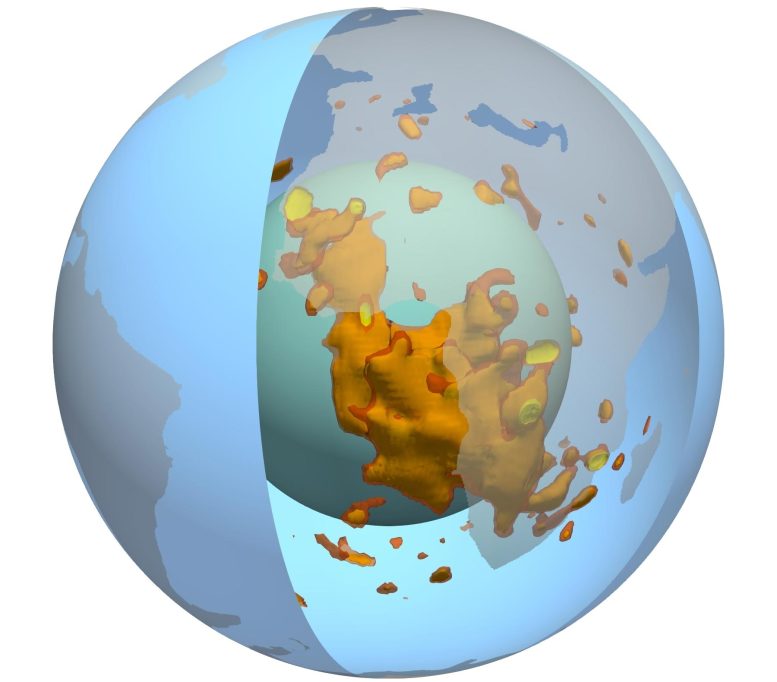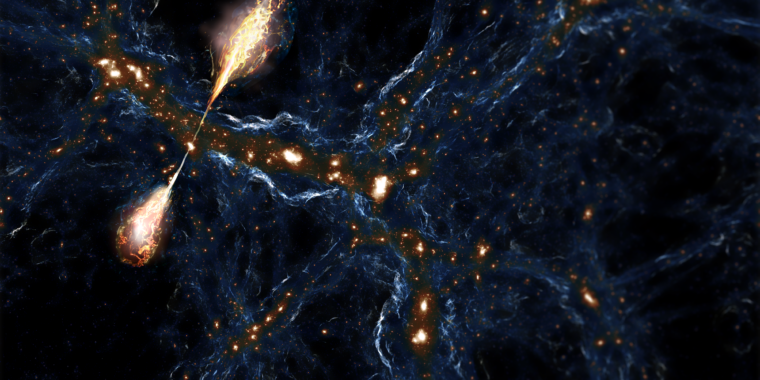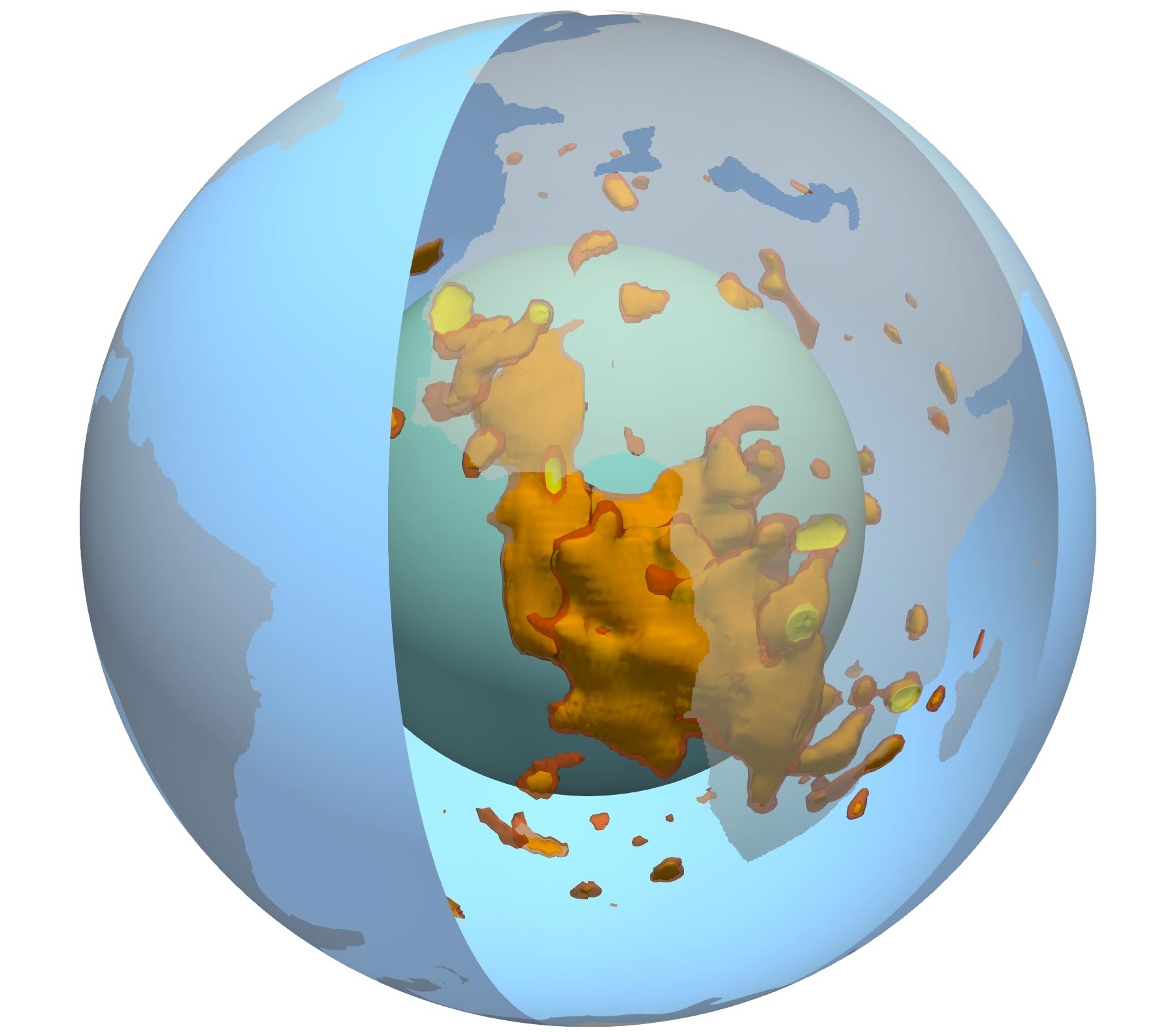
赤 – 黄色 – オレンジ色でマークされたアフリカの下の地球のマントルの汚れの 3 D ビュー。 シアンはコアとマントルの境界を表し、青は表面を表し、透明な灰色は大陸を表します。 クレジット: Mingming Li/ASU
地球は、タマネギのように、薄い外側の知覚、厚い粘性マントル、流体の外側コア、堅い内側コアで構成されています。 マントルの内部には、惑星の反対側に2つの巨大な汚れのような構造があります。 より正式には、LLSVP(Large Low-Shear-Velocity Provinces)という汚れはそれぞれ大陸サイズで、エベレスト山より100倍高いです。 1つはアフリカ大陸の下にあり、もう1つは太平洋の下にあります。
科学者たちは、地震波を測定する機器を使用して、この2つの塊が複雑な形状と構造を持っていることを知っていますが、顕著な特徴にもかかわらず、塊が存在する理由や奇妙な形になった原因については知られていることはほとんどありません。
Arizona State Universityの地球および宇宙探査学校の科学者Qian YuanとMingming Liは、地球力学モデリングと発表された地震研究分析を使用して、これら2つの汚れの詳細を学び始めました。 彼らの研究を通して、彼らは汚れが到達する最大の高さとマントルの周囲粘度だけでなく、汚れの体積と密度の高さを制御する方法を決定することができました。 彼らの研究は最近
The results of their seismic analysis led to a surprising discovery that the blob under the African continent is about 621 miles (1,000 km) higher than the blob under the Pacific Ocean. According to Yuan and Li, the best explanation for the vast height difference between the two is that the blob under the African continent is less dense (and therefore less stable) than the one under the Pacific Ocean.
To conduct their research, Yuan and Li designed and ran hundreds of mantle convection models simulations. They exhaustively tested the effects of key factors that may affect the height of the blobs, including the volume of the blobs and the contrasts of density and viscosity of the blobs compared with their surroundings. They found that to explain the large differences of height between the two blobs, the one under the African continent must be of a lower density than that of the blob under the Pacific Ocean, indicating that the two may have different composition and evolution.
“Our calculations found that the initial volume of the blobs does not affect their height,” lead author Yuan said. “The height of the blobs is mostly controlled by how dense they are and the viscosity of the surrounding mantle.”
“The Africa LLVP may have been rising in recent geological time,” co-author Li added. “This may explain the elevating surface topography and intense volcanism in eastern Africa.”
These findings may fundamentally change the way scientists think about the deep mantle processes and how they can affect the surface of the Earth. The unstable nature of the blob under the African continent, for example, may be related to continental changes in topography, gravity, surface volcanism and plate motion.
“Our combination of the analysis of seismic results and the geodynamic modeling provides new insights on the nature of the Earth’s largest structures in the deep interior and their interaction with the surrounding mantle,” Yuan said. “This work has far-reaching implications for scientists trying to understand the present-day status and the evolution of the deep mantle structure, and the nature of mantle convection.”
Reference: “Instability of the African large low-shear-wave-velocity province due to its low intrinsic density” by Qian Yuan and Mingming Li, 10 March 2022, Nature Geoscience.
DOI: 10.1038/s41561-022-00908-3














+ There are no comments
Add yours